Wicked has hit theaters as of Friday (November 22) with musical lovers ready to enjoy another adaptation of The Wizard of Oz prequel.
Jon M. Chu’s highly-anticipated film starring Ariana Grande and Cynthia Erivo as Glinda and Elphaba, respectively, comes more than two decades after Wicked the musical began its Tony Award-winning run on Broadway.
It debuted at the Gershwin Theater in New York City in 2003 and is still playing there to this day, making it the tenth longest-running production in Broadway history. It surpassed $1 billion in earnings in 2016, becoming one of three Broadway shows in history to do so alongside The Lion King and The Phantom of the Opera.
As with any adaptation, there are a few changes from the original — indeed, the play was based on Gregory Maguire’s 1995 novel, Wicked: The Life and Times of the Wicked Witch of the West, which itself was inspired by L. Frank Baum‘s 1900 novel The Wonderful Wizard of Oz and its 1939 film adaptation.
For Broadway fans, the entire score in the new film is the same, with some varying outros or longer sections. But because the movie is being split into two parts, there were opportunities to dive deeper into the stories of Galinda and Elphaba that aren’t included in the play.
Here are five ways Chu’s Wicked differs from the Broadway stage musical.
*Warning — Spoilers ahead for ‘Wicked’ the film and musical*
Elphaba’s childhood
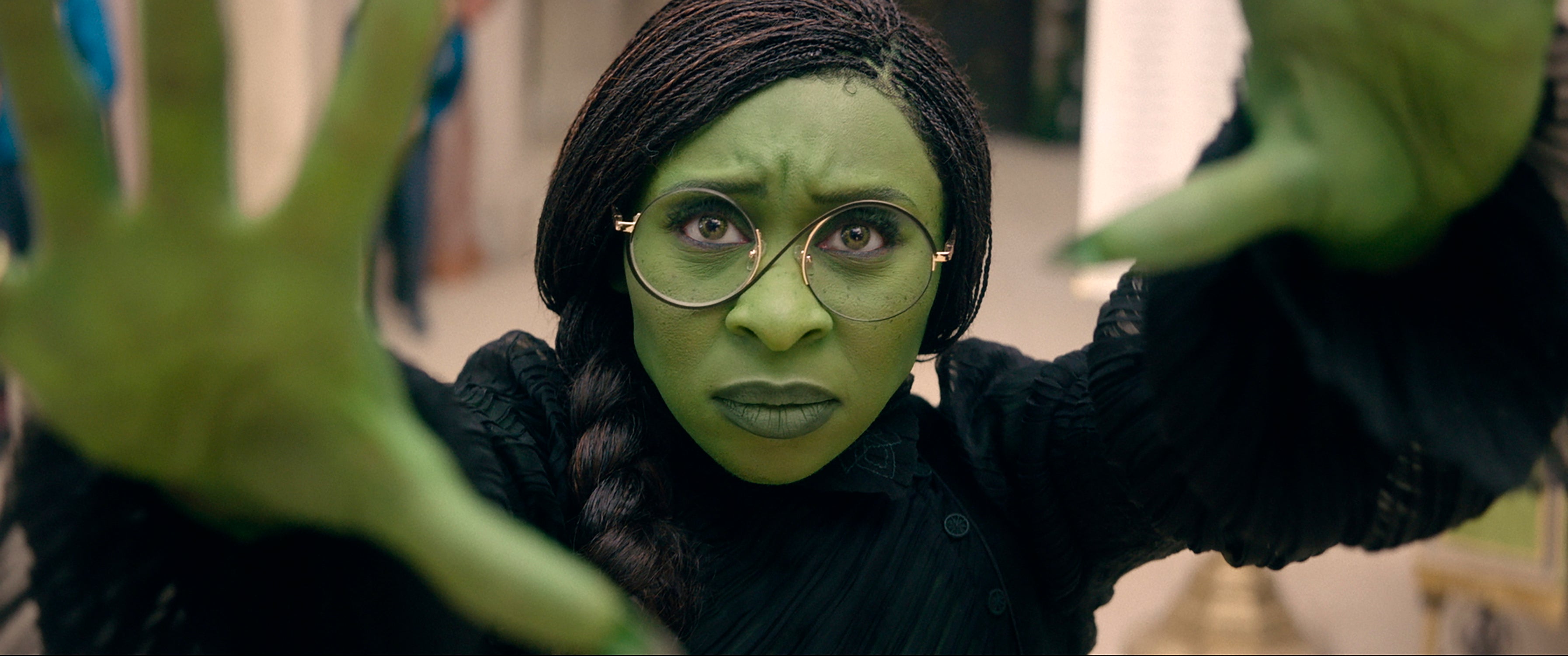
From the beginning of the musical, viewers are aware of Elphaba’s rocky relationship with her father. Her mother has an affair with a traveling salesman (later revealed to be the Wizard) who makes her drink a green elixir, which turns Elphaba green.
The movie shows flashbacks to the Wicked Witch of the West growing up and the children of Munchkinland bullying her over her looks. Her father doesn’t even want to raise her until a talking bear named Dulcibear convinces him otherwise. She ends up becoming Elphaba and Nessarose’s nanny, which largely explains why she is such a big animal rights activist.
Fiyero and Elphaba’s first meeting
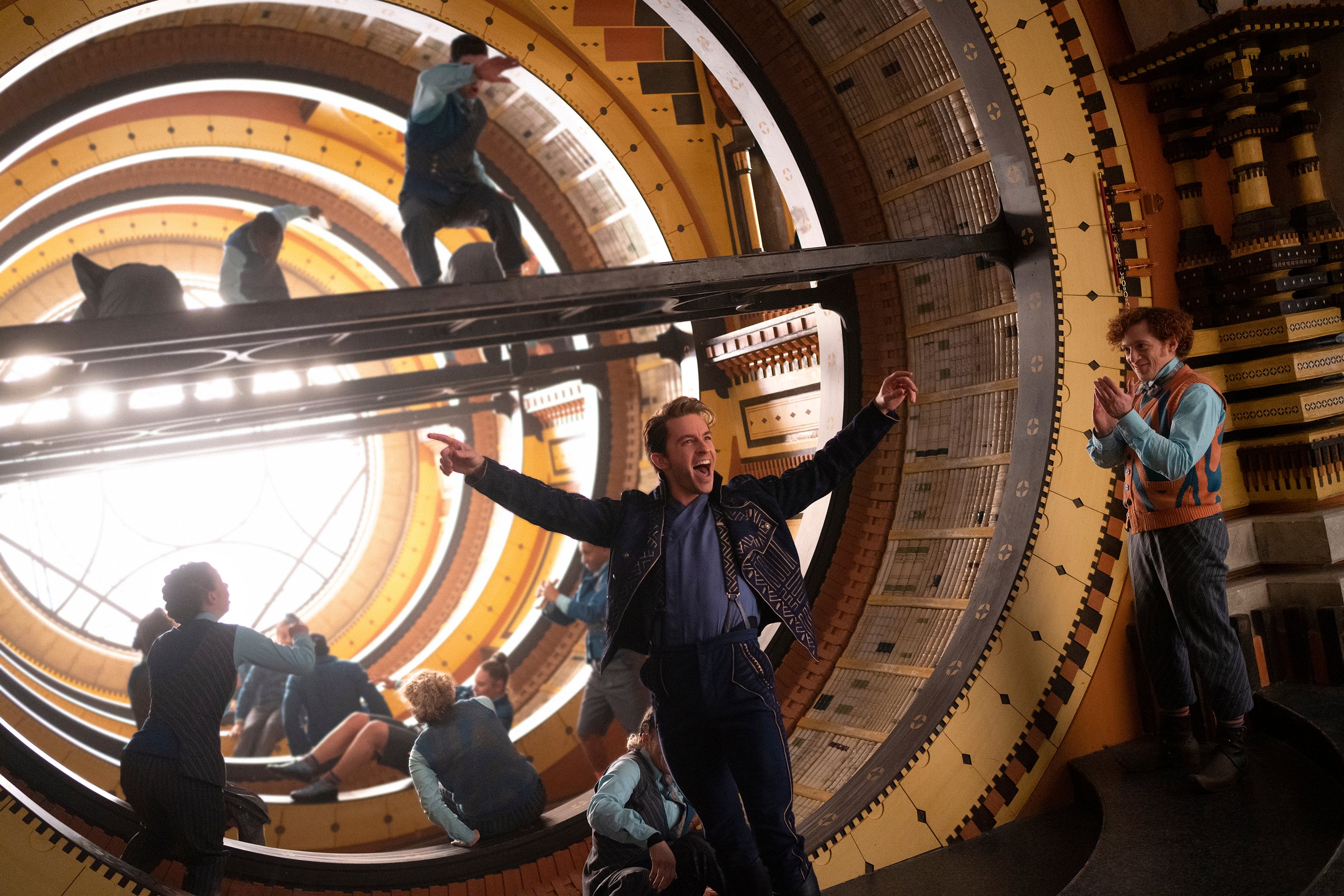
Shiz University’s heartthrob is originally introduced in the musical to Elphaba and Galinda at the exact same time, laying the groundwork for the love triangle established between the three of them.
However, in the movie, Fiyero and Elphaba meet separately when she is leaving Dr. Dillamond’s home. The two talk briefly before it is discovered that he is a new Shiz student. This allows for a stronger foundation for the couple’s relationship that will be looked at more in the movie’s second part.
The Munchkin’s relationship to the Wizard
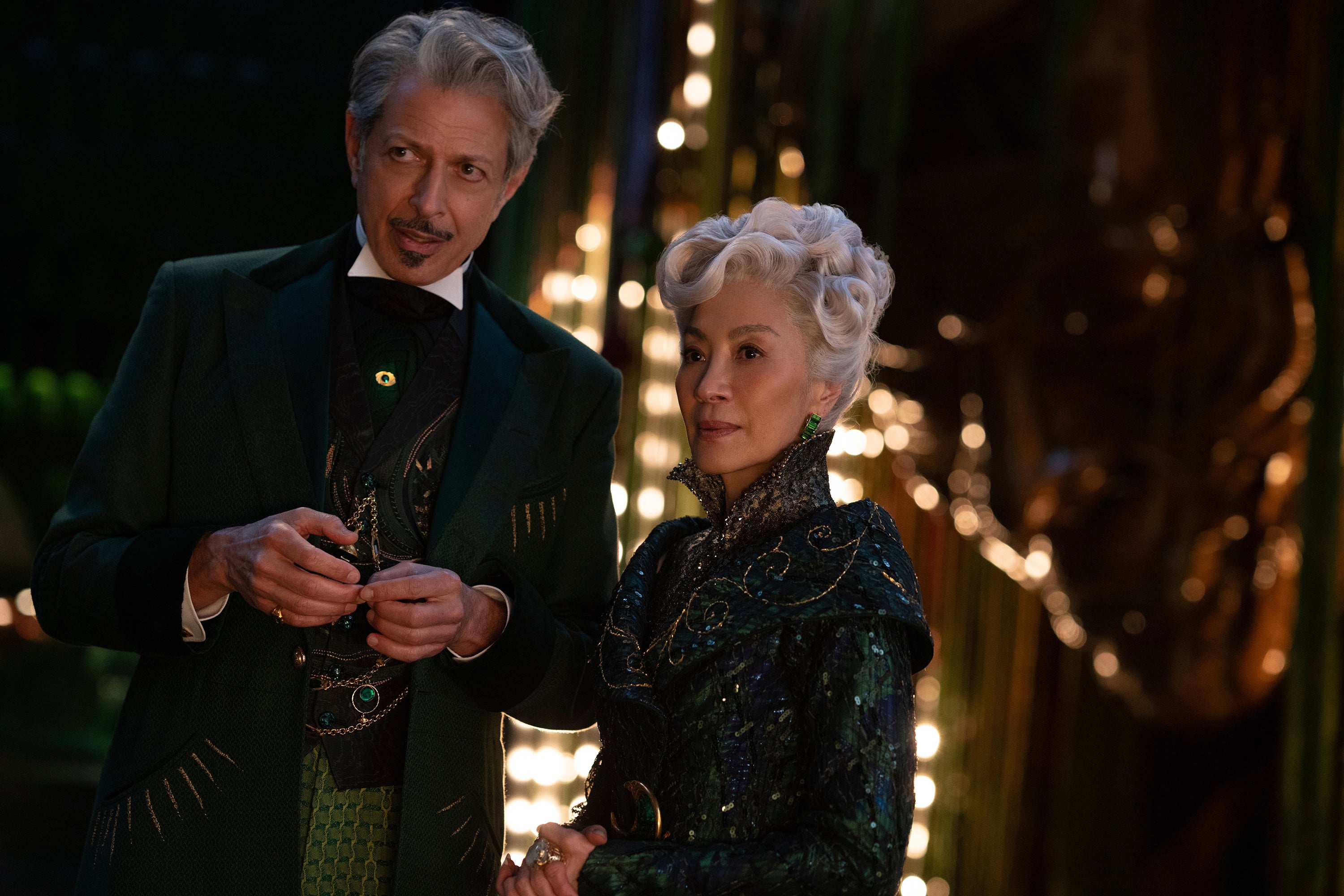
In the Broadway musical, the song “One Short Day” features a game show called Wizomania, which briefly explains that the Wizard just showed up in a hot air balloon and saved Oz from their “posteriors.”
In the movie, the original Elphaba and Galinda, played by Idina Menzel and Kristin Chenoweth, make cameos singing about a spell book called The Grimmerie. Before the Wizard showed up, a group of magically adept individuals called “The Wise Ones” ruled Oz before they all died off. But there was a prophecy that someone would arrive and be able to read The Grimmerie when people needed it the most. Because the Wizard could read the book, they assumed he could save them.
Madame Morrible and her relationship with Elphaba
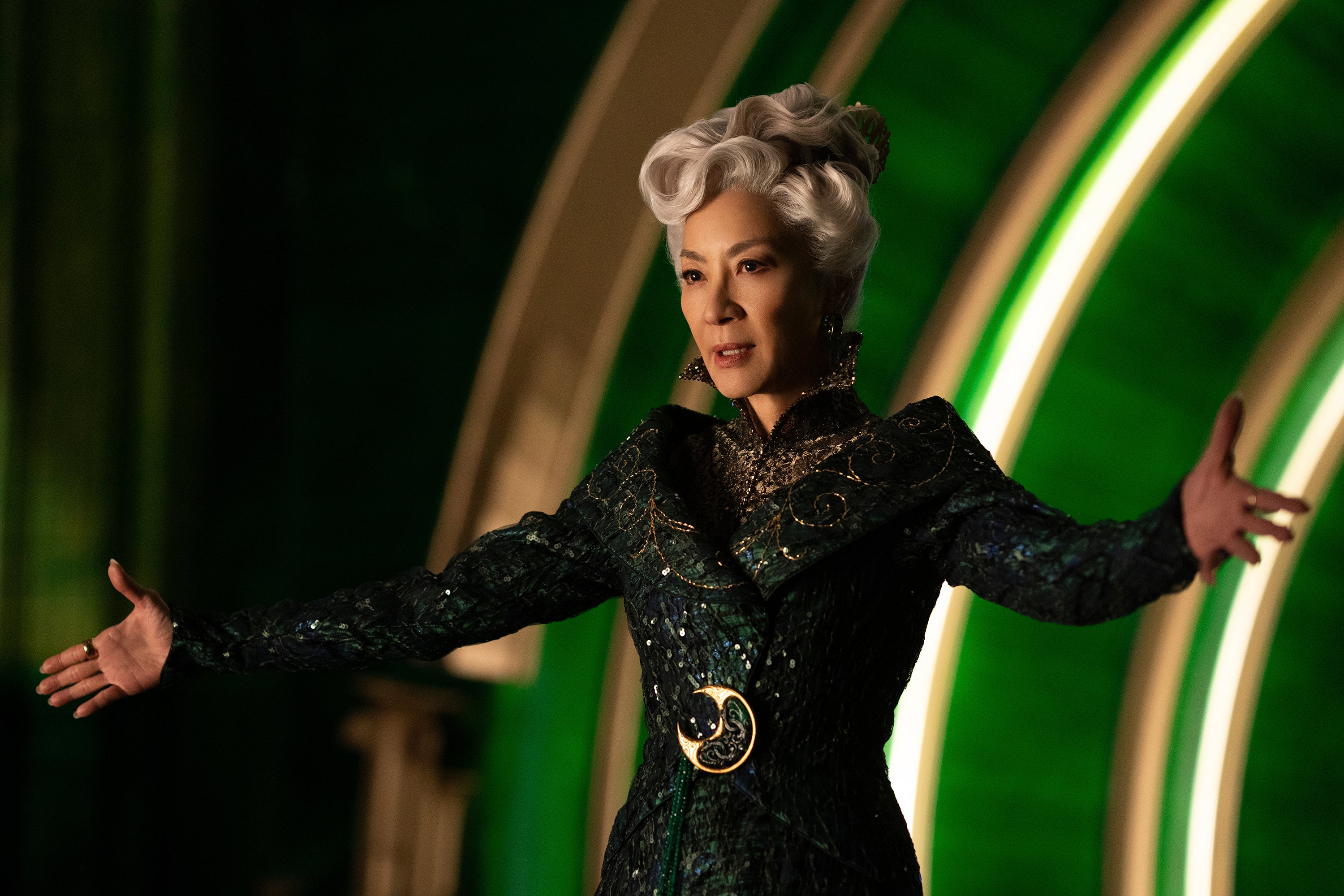
Throughout the musical, the headmistress of Shiz is more of a background character as the viewer gradually learns just how involved she is with the Wizard’s plan to manipulate both Galinda and Elphaba.
However, in the film, Morrible is the reason Elphaba is able attend Shiz after she witnesses the witch’s talents and decides to personally train her through her sorcery seminar and teach her how to harness her magical abilities.
How Elphaba can fly
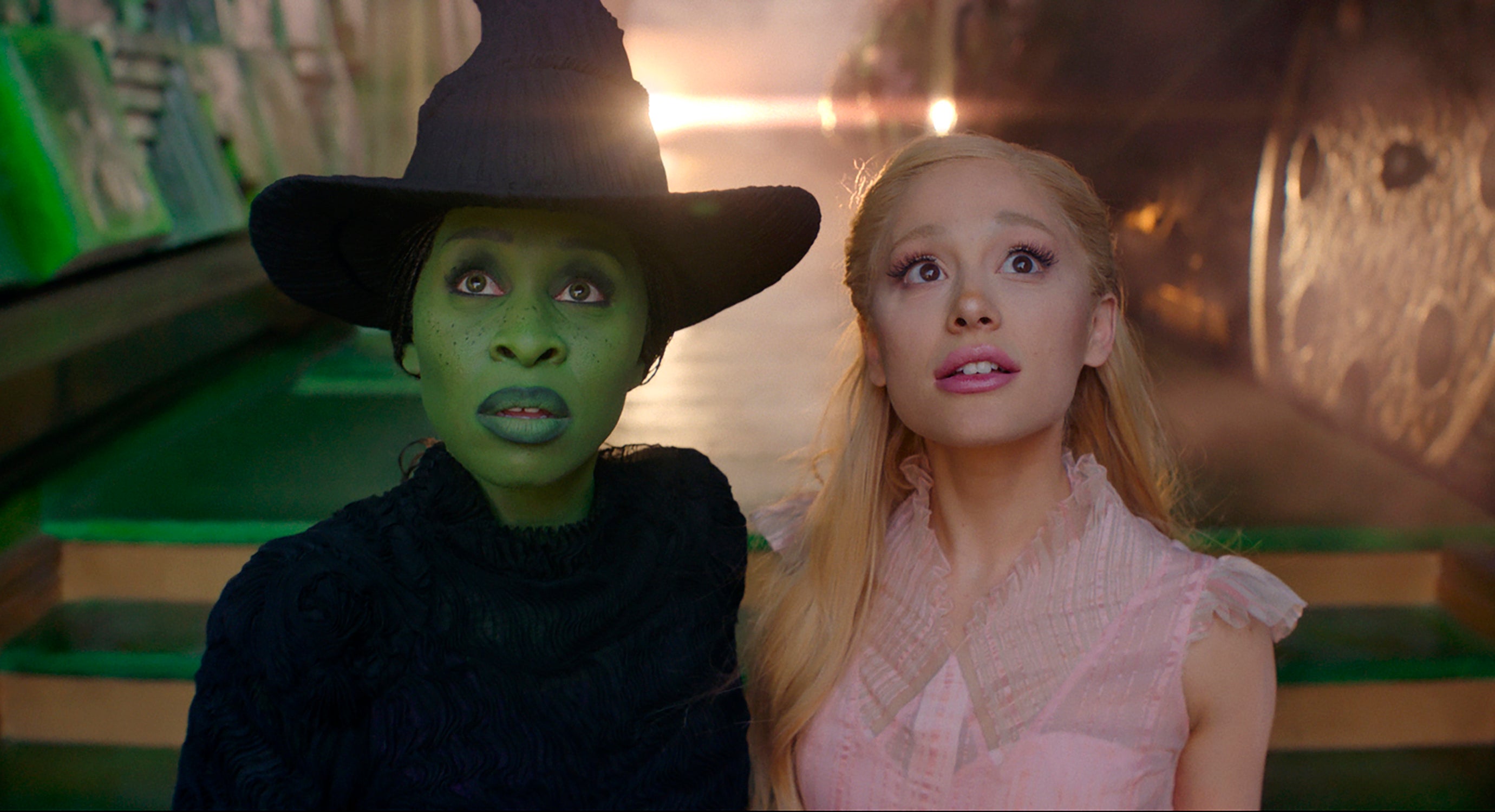
“Defying Gravity” marks the end of both the first act in the musical and part one in the movie as Elphaba flies on a broom and accepts herself as the Wicked Witch that people think she is.
However, in the Broadway version, she doesn’t struggle to fly in the same way she does in the film. In the film, Elphaba falls, and there is a younger version of herself that appears and inspires her to try again.
“That was really important,” Chu said about adding in a young Elphaba to the song. “She needed a reason why: not for anger, not for vengeance, but for herself. She needed to be this person.”







